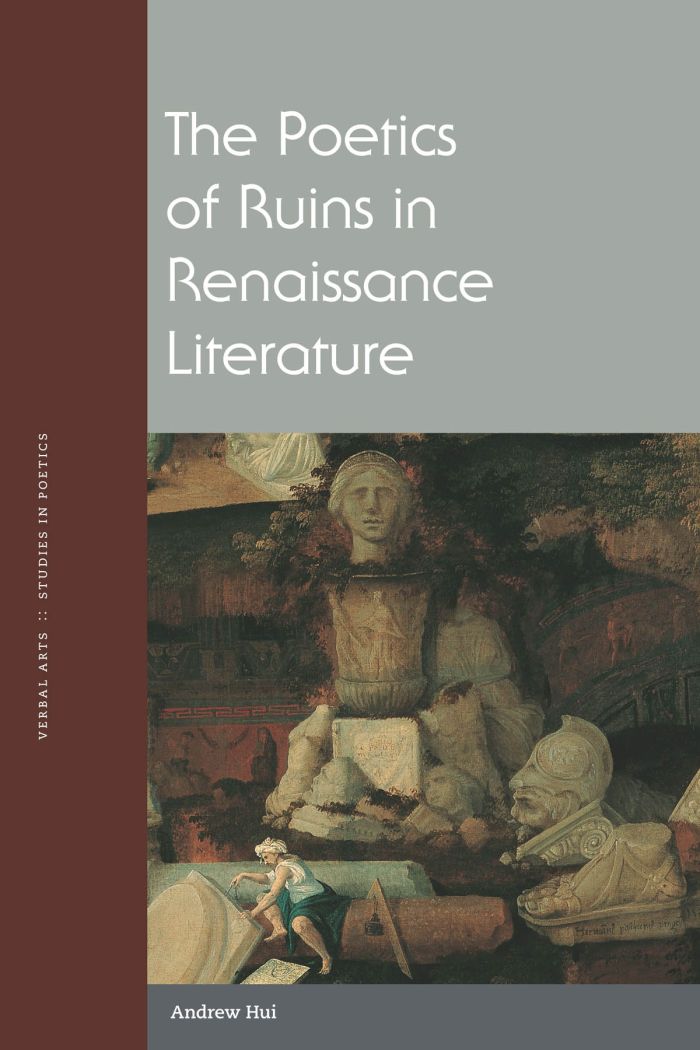The Poetics of Ruins in Renaissance Literature

This book can be opened with

Written with a lucid, elegant sensibility and profound erudition, this study interprets anew the shifts in meaning and value of ruins from classical Latin, to the Romance languages, to English lyrics. At the heart of his analysis Hui uncovers and probes the central problems raised by thinkers on the archeology of ruins: the inner relation between literature and ruins, the ethics of finitude they embody, their future, and the place of ruins at the new beginnings of history. My mind expands as I read it, and I can easily predict others will respond the same way.—Giuseppe Mazzotta, Sterling Professor in the Humanities for Italian, Yale University
...Hui urges us to consider how the study of Renaissance poetics—conceived not as the exploration of Europe's cultural figura but its ruins—might be a global, transgenerational, transnational field of study. Future multi-author monographs should follow this example.—The Spenser Review
[Hui] deserves praise for having restricted the number of examples he gives to support his thesis, while at the same time not limiting himself to only one cultural realm. In this way, he sets an example for a type of Renaissance studies that bridges both temporal and linguistic divides, just as ruins do.—Bryn Mawr Classical Review
The value of Hui's study is that it treats the core driving forces of European Renaissance poetry as a cohesive phenomenon... Given the immense erudition that this young author displays in his first book, coupled with the enthusiasm patent in his vibrant style, in coming years we may expect from him contributions to literary scholarship of the highest distinction.—Modern Language Quarterly
This is a deeply learned and beautiful book.—SEL: Studies in English Literature 1500-1900

